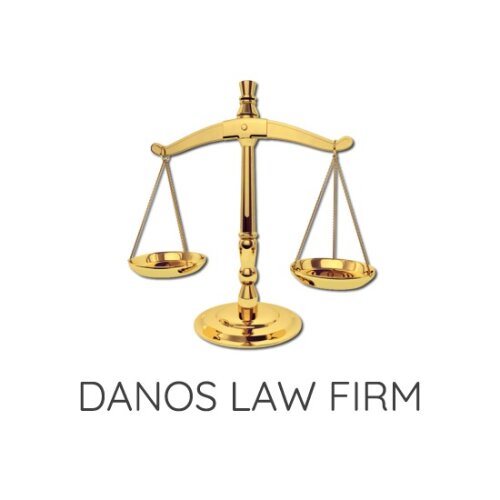Best Climate Change Law Lawyers in Limassol
Share your needs with us, get contacted by law firms.
Free. Takes 2 min.
List of the best lawyers in Limassol, Cyprus
About Climate Change Law in Limassol, Cyprus
Climate Change Law in Limassol, Cyprus encompasses the body of national, European Union, and international legal principles and regulations aimed at addressing the challenges of climate change. This field of law covers mitigation and adaptation strategies, carbon emissions reduction, renewable energy incentives, environmental protection, and compliance with international treaties like the Paris Agreement. In Limassol, which is a coastal city facing unique environmental pressures, these legal frameworks are essential for balancing economic development with environmental sustainability. Climate Change Law impacts individuals, businesses, developers, and public bodies engaged in activities that influence the environment.
Why You May Need a Lawyer
Seeking legal advice from a Climate Change Law expert in Limassol can be important for various reasons. Common situations include:
- Navigating complex regulations when starting a construction or development project near the coastline or environmentally sensitive areas - Ensuring business operations comply with national and EU emissions targets - Responding to government inspections or enforcement actions related to carbon emissions or pollution - Applying for permits or licenses involving renewable energy initiatives - Defending against environmental claims or legal challenges - Understanding your rights regarding public participation in environmental decision making - Managing property issues affected by sea level rise, flooding, or erosion - Seeking funding or tax incentives for green investments - Preparing environmental impact assessments as part of regulatory requirements
An experienced lawyer can help you understand your obligations, represent you in negotiations or legal disputes, and assist in securing compliance with applicable laws.
Local Laws Overview
Climate Change Law in Limassol is shaped by a combination of Cypriot national legislation, EU directives, and international agreements. Key aspects include:
- Cyprus’s National Adaptation Strategy: Aims to identify and address climate risks, including those specific to coastal municipalities like Limassol - Emissions Trading System (ETS): Cyprus participates in the EU ETS, impacting industries with high greenhouse gas emissions - Renewable Energy Legislation: National laws encourage solar, wind, and other renewable energy sources, often impacting new developments and investments - Environmental Impact Assessment (EIA): Projects that could affect the environment require thorough EIAs under both Cypriot and EU law - Coastal Protection Laws: Rules govern activities near the shore to prevent erosion and minimize flood risks, which are increasingly important due to sea level rise - Waste Management Regulations: Emphasize reducing landfill waste and promoting circular economy initiatives - Building Regulations and Energy Efficiency: Standards are in place for energy-efficient construction and renovations
Failure to comply with local and European climate-related laws can result in penalties, project delays, or costly legal disputes.
Frequently Asked Questions
What is Climate Change Law?
Climate Change Law is a specialized area that addresses the legal frameworks for managing and mitigating the causes and effects of climate change, often by regulating emissions, supporting sustainable energy, and protecting the environment.
Does Cypriot law require an environmental impact assessment for new developments in Limassol?
Yes, most new developments, especially those near the coast or in sensitive areas, require an EIA to assess and mitigate the environmental impact before receiving approval.
How does the EU Emissions Trading System affect businesses in Limassol?
Businesses in certain sectors must measure and report their emissions, and may need to purchase allowances under the EU ETS. Non-compliance can result in fines or other penalties.
Are there incentives available for installing solar panels or other renewable energy systems in Limassol?
Yes, both government and EU programs often offer financial incentives, grants, or tax breaks for renewable energy installations. A lawyer can help navigate application processes and compliance.
What are my legal rights if my property is damaged by climate-related flooding or coastal erosion?
Property owners may have rights to compensation or support if damages occur due to insufficient infrastructure or government negligence. Legal advice is essential to evaluate each case.
Can citizens participate in climate change decision-making processes in Limassol?
Yes, public participation is a protected right under both national and EU law, especially in planning or development decisions that affect the environment.
Do landlords and property developers face specific climate-related obligations?
Yes, building regulations now require higher energy efficiency standards and may require additional measures depending on the location and type of development.
What legal obligations exist for industrial pollution in Limassol?
Strict regulations govern industrial emissions, waste handling, and reporting. Non-compliance can result in significant sanctions and even facility closure.
How are disputes regarding environmental damage resolved in Cyprus?
Disputes can be resolved through administrative channels or, if necessary, through the Cypriot courts. Mediation and negotiation are also possible in certain cases.
What should I do if a government or corporate project may affect the Limassol environment?
You have a legal right to be informed and voice concerns during public consultations. A lawyer can help you understand your rights and prepare submissions or objections.
Additional Resources
- Department of Environment, Republic of Cyprus: Provides guidelines, laws, and reports on climate-related issues - Limassol Municipality: Information on local initiatives, regulations, and environmental programs - Cyprus Energy Regulatory Authority (CERA): Regulates energy markets including renewables - Cyprus Bar Association: Find qualified lawyers specializing in environmental and climate change law - Cyprus Chamber of Commerce and Industry: Offers information on sustainable business practices and compliance - Environmental NGOs such as Friends of the Earth Cyprus and Terra Cypria provide advocacy, education, and legal assistance
Next Steps
If you believe your situation involves issues related to Climate Change Law in Limassol, take the following steps:
- Gather any relevant documents such as permits, environmental impact studies, or official correspondence - Identify the specific issue or concern and note any deadlines for official actions, appeals, or license applications - Research local regulations and guidelines to gain a preliminary understanding of your obligations - Contact a lawyer with expertise in environmental or climate change law for a tailored consultation - Prepare any questions or concerns you want to discuss with your lawyer - Follow professional advice to ensure compliance, avoid unnecessary risks, and protect your rights or interests
Taking proactive legal advice is the best way to navigate the complex and changing landscape of Climate Change Law in Limassol, Cyprus.
Lawzana helps you find the best lawyers and law firms in Limassol through a curated and pre-screened list of qualified legal professionals. Our platform offers rankings and detailed profiles of attorneys and law firms, allowing you to compare based on practice areas, including Climate Change Law, experience, and client feedback.
Each profile includes a description of the firm's areas of practice, client reviews, team members and partners, year of establishment, spoken languages, office locations, contact information, social media presence, and any published articles or resources. Most firms on our platform speak English and are experienced in both local and international legal matters.
Get a quote from top-rated law firms in Limassol, Cyprus — quickly, securely, and without unnecessary hassle.
Disclaimer:
The information provided on this page is for general informational purposes only and does not constitute legal advice. While we strive to ensure the accuracy and relevance of the content, legal information may change over time, and interpretations of the law can vary. You should always consult with a qualified legal professional for advice specific to your situation.
We disclaim all liability for actions taken or not taken based on the content of this page. If you believe any information is incorrect or outdated, please contact us, and we will review and update it where appropriate.












